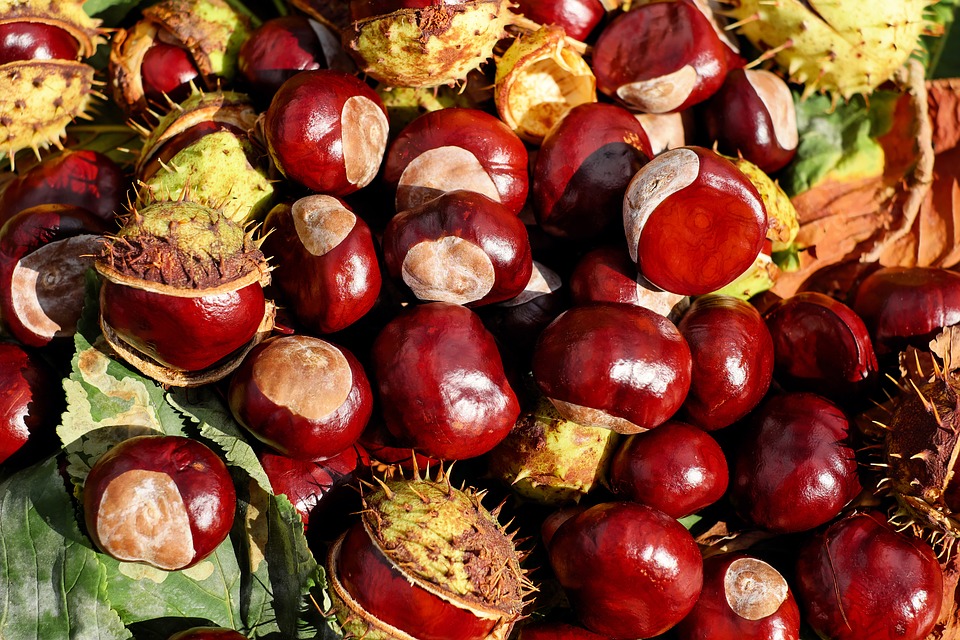
Are chestnuts good for diabetics?
Explore the health benefits of chestnuts
Chestnuts vary from the other tree nuts in terms of their composition which has been considered beneficial for diabetes. Nuts are considered to be an excellent snacking option as they are high in vitamins, minerals, and other beneficial nutrients which aid in the management of type 1 and type 2 diabetes. Have you ever wondered how these small nuts can bring wonders to our health?
Let’s explore the magic of the mighty chestnut with respect to diabetes!
Are Chestnuts high in Sugar?
Chestnuts are low in calories and fats unlike other nuts. They possess good amounts of carbohydrates which is nothing but sugar, which is a sparkling factor compared to the other tree nuts. You must be wondering how can carbohydrate being sugar help in diabetes? Well, it is the complex carbohydrates/sugar which is present and complex carbs are beneficial for people with diabetes.
Do Chestnuts raise blood sugar level?
Chestnuts contain resistant starch (complex carbohydrates) which aid in transferring the sugar to the blood in a very controlled manner. Thereby helps in managing blood sugar levels by raising blood glucose slowly. This helps to avoid spikes in blood sugar, which can be dangerous for people with diabetes. Due to its high carbohydrate content, it is recommended to consume in prescribed quantity for a diabetic person. Recommended quantity – 1 ounce (28g) per day.
How do Chestnuts stabilize blood sugar levels?
Chestnuts have low glycemic index (GI) which are preferable for people with diabetes. Lower the glycemic index higher is the Fiber. Fiber in chestnuts improves blood glucose levels by helping insulin work more effectively. This is extremely important for people with diabetes type 2.
Do chestnuts improve gut health in diabetics?
The bacteria in your gut can affect your blood sugar levels and overall health. Studies have shown that disruption in the gut microbiome can contribute to the development of type 2 diabetes. The fiber in chestnuts acts as a prebiotic, fueling the gut bacteria and in turn help in maintaining a healthy gut and gut environment.
Are chestnuts a good source of antioxidants?
In the diabetic condition, the blood glucose levels are high leading to the generation of molecules which damage the cell function, aggravating insulin resistance and worsening diabetes. Chestnuts are excellent sources of antioxidants like vitamin C and gallic acid which is like an antidote to the present scenario. It helps in suppressing insulin resistance thereby improving insulin sensitivity which means it makes insulin more responsive to the cells.
Do Chestnuts lower inflammation?
Diabetes is a chronic condition where a person is prone to inflammation. Chestnuts contain polyphenols and antioxidants like vitamin C, ellagic acid which help in reducing inflammation.
Do chestnuts help in lowering LDL cholesterol?
Chestnuts lowers “bad” LDL cholesterol and triglyceride levels in people with diabetes. It prevents the clogging of arteries and improves the functions of the blood vessels. It also reduces the risk of cardiovascular disease associated with diabetes.
Do chestnuts boost immunity?
People with diabetes are susceptible to infections due to high levels of blood sugar. Chestnuts are a good source of Vitamin C, which stimulates the production of White blood cells, strengthening the immune system to ward off any kind of infections or pathogens.
Do chestnuts improve bone density?
People with diabetes especially type 1 have poorer bone quality due to long standing disease and poorer blood sugar control which increases the risk of fractures. Chestnuts are good sources of copper and magnesium. These vital minerals increase the bone mineral density and prevents the onset of age-related bone disorders such as osteoporosis.
Do chestnuts have Vitamin E?
A diet low in vitamin E has been associated with the development of type 2 diabetes. Chestnuts are good sources of Vitamin E which has been shown to help insulin work more effectively in people with diabetes.
Do chestnuts improve brain health?
Studies have shown that diabetes reduces the cognitive functions because of the damage done to the small blood vessels in the brain overtime. Chestnuts are rich in the Vitamin B family like folate, thiamine, riboflavin etc. which are linked to neurological development and function. They help in maintaining good brain health.
So, Chestnuts are indeed diabetic friendly!
You must be wondering how to incorporate these amazing nuts in your diet?
Ways to include chestnuts in your diet:
- Simple roasting of chestnuts and snacking will be a great option as your evening or mid-morning snack.
- Puree the nuts and use it as a substitute for peanut butter.
- Crush the nuts over a fruit bowl or on fresh yogurt.
- Add a mix of these crushed chestnuts to your regular stuffing’s or salads.
- Roast chestnuts and make a flour out of it and use it as sheets, cookies and bread. It is a great option as a diabetes snack.
Chestnuts are not only Chip and dale’s favorite, it can be your favorite too as they are amazingly delicious, mildly sweet and versatile enough to incorporate in any way you want and the most important is, it is diabetic friendly. However, since Chestnuts are considered a high carb nut it is recommended not to binge on these for people with diabetes (type 2). It is recommended to have chestnuts on a daily basis limited to 1 ounce (28g) per day which is proven to be beneficial for people with diabetes.
Happy Munching!
Written by Aishwarya Deepika, ENHAPP Wellness Coach & Nutritionist